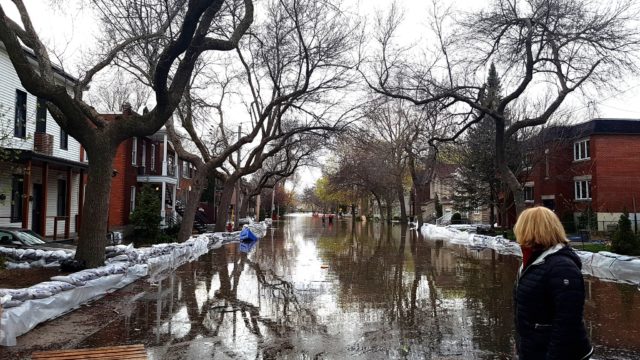Canada finally has a climate accountability framework — now we need to implement it.
Canadians (and generations of Canadians to come) require action from the leaders of today to blunt the climate crisis already unfolding around us.
Despite knowing for decades that climate change is a rapidly growing threat to our health, environment, communities, and economy, Canada has missed every single greenhouse gas target it has ever set. In the absence of a climate accountability law, successive governments have faced few consequences for this ongoing failure.
Establishing a framework to support Canada in finally meeting its pollution targets is a practical and necessary step to change this trajectory.
That is why the Canadian Net-Zero Emissions Accountability Act (Bill C-12) is such a critical step forward for action on climate change. While not as strong as international comparators, Bill C-12 improves transparency and consistency around climate action and will allow Canadians to hold the federal government to account for meeting emissions reduction targets.
Good news: The legislation has passed in the House of Commons and the Senate and will now become law.
When Bill C-12 was tabled before the House of Commons in November 2020, environmental organizations welcomed its introduction but noted that the legislation needed significant improvements before it could be considered a credible climate law.
The legislation languished in the House of Commons for several months, all while environmental groups, climate activists and members of the public urged MPs to strengthen Bill C-12 and make it a political priority.
When it eventually reached the House Standing Committee on Environment and Sustainable Development for a critical review and important amendments, MPs were once again urged to use the opportunity to improve Bill C-12.
Several parties worked together in the minority Parliament to strengthen Bill C-12 under the constant cloud of a snap election. And when it came down to the wire at Third Reading, all parties but one voted to pass this critical legislation. This multi-partisan approach is no small victory, and it shows that when it comes to facing down the climate emergency politicians recognize that Canadian need them to work together.
Bill C-12 is not perfect. But it does bring Canada closer to taking the action needed to stave off a climate catastrophe. Crucially, we finally have a legislative framework that will require the federal government to have a plan to meet pollution targets (and take more action if they are off track). Over time, this law can be improved if experience shows it isn’t up to the task.
A key criticism of Bill C-12 when it was tabled last year was the lack of a 2030 target, opting instead for a requirement to set that target six months after the law came into force. The legislation has now been amended to make Canada’s latest Nationally Determined Contribution (NDC) — obligated under the Paris Agreement — our 2030 target. This comes into force as soon as Bill C-12 becomes law. This matters because it will give greater certainty from the outset to the governments, industry, and people across the country working to accelerate the transition toward a net-zero economy.
Bill C-12 also mandates a climate objective for 2026. While not as strong as a target, this objective is an important development that ensures greater visibility around the federal government’s climate ambition in the near term.
Carbon targets will now be set 10 years in advance — instead of five as originally proposed in the legislation. This provides greater certainty to everyone as to the direction of federal climate policy and encourages the innovation and investment necessary to accelerate a just and green economic transition.
Amendments passed by the House Standing Committee mean that climate plans will include more detail, charting a clearer and more credible course for achieving pollution targets. Bill C-12, as amended, significantly improves the detail required in plans, and the detail and frequency of reports. This includes more frequent reports before 2030 — the Minister of Environment and Climate Change must now produce three reports on Canada’s climate action before that milestone.
However, there are still outstanding concerns about the effectiveness of Bill C-12. Environmental groups, including Ecojustice, remain concerned about the independence of its advisory body, transparency around the role of provinces and territories in achieving Canada’s climate targets, and how we define the term “net-zero.”
Thanks to an important amendment passed in the last hours of committee hearings, this legislation must undergo a comprehensive review five years after it comes into force. If the federal government is failing in its climate action, we will have a chance to strengthen the law.
The true test of this legislation will be in its implementation.
What is painfully clear — as we face yet another summer of wildfires, drought, and extreme heat events — is that Canada needs to take bold, brave, and progressive climate action for the good of people in Canada today, and for those yet to come. The first test will be Canada’s new nationally determined contribution, which is expected any moment now. This must commit to a rapid reduction in emissions by 2030. Then the first climate plan introduced by the Minister under this law must set a high standard for governments of the future follow, by charting a clear and credible course to that target.
The passage of Bill C-12 into law can be a crucial turning point for Canada’s legacy on climate action, but it will require the federal government and all political leaders — backed by their constituents — to lead the fight against the climate crisis with an unprecedented level of conviction and determination.






